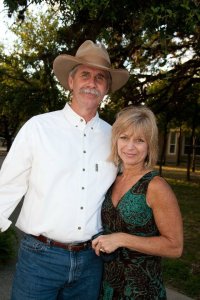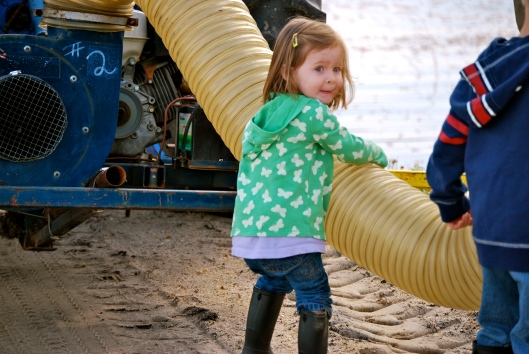Do you have a tendency to pre-judge people? Did you hear me ask you if you were prejudiced? I think we have something in us that seeks to place people in a context. I don’t know if we can avoid it completely. Do you think we need that skill in order to navigate in the world?
I have been living in multiple worlds lately.
I have long known that when people find out that I am a preacher that I am treated a particular way. Often that category is a conversation killer. Sometimes the category allows me to ask serious questions, or even to take charge in a crisis situation. Other times being a preacher is to be a generally irrelevant (silly) person.
Recently I have been spending time in the university environment. Having a doctorate is useful there. People believe that you have something to offer that is important and significant. That is not always true. I am about a decade older than my boss. When we walk into a non-ACU situation together, the people look to me first. I walk and talk and greet with confidence. I look like I could be the boss. And I begin to wonder if I need to act differently, because I am not the leader.
How do people categorize you? Have you ever been pigeon-holed? You do fit some categories, right? Do you have blue eyes? Do you have a college degree? Where were you born? We also categorize by gender and ethnicity, right? Do we categorize by ability and disability?
Lynn Anderson tells a story about his son-in-law, Wes English. Wes worked for me for a while back when I was the manager of Crystals in Abilene. He was a college student, working his way through college singing and playing his guitar. The first time I remember hearing Jesus is Coming Soon, Wes was singing it. The story that his father-in-law tells happened just after Wes and Michelle were married (1/9/82 – they sang at our wedding and then got married themselves the following Saturday). They moved to Castle Rock, Colorado. They put a deposit on an apartment, filled out the lease agreement, agreeing to rent the apartment. They came back a while later to get the key, but the manager had changed his mind.  Wes was a musician. The manger did not want to rent to a musician. They were looking for more reliable clients. (I must tell you that the whole category of renter is difficult!). Wes English was anything but unreliable! The category was mis-applied.
Wes was a musician. The manger did not want to rent to a musician. They were looking for more reliable clients. (I must tell you that the whole category of renter is difficult!). Wes English was anything but unreliable! The category was mis-applied.
We are thinking about the Jesus Style of Relationships. Jesus comes to model God’s intention for the world. He comes to set our priorities in line with God’s interests.
You know the greatest commands, right? This is how we hear them in Luke.
Just then a lawyer stood up to test Jesus. “Teacher,” he said, “what must I do to inherit eternal life?” He said to him, “What is written in the law? What do you read there?” He answered, “You shall love the Lord your God with all your heart, and with all your soul, and with all your strength, and with all your mind; and your neighbor as yourself.” And he said to him, “You have given the right answer; do this, and you will live.”
But wanting to justify himself, he asked Jesus, “And who is my neighbor?”
- If you asked people if they loved God, what do you think they would say?
- Do we love God with our whole being?
- However, for our conversation, the important focus here is embodied in love your neighbor as yourself.
- Is the lawyer looking for a category? Who must I love as I love myself?
- Does this include Democrats? And people of different races and different sins than your own? What about homosexuals? (There is a good label for us to manage.) What about people on welfare? What about people who are ragged?
- I had a young mother in my office this week who is struggling to do the right things. She is injured. She is almost married to a man who works in chicken processing. He works. They come from a fractured family background. And they are hanging by a thread. Love your neighbor as yourself.
- I think the lawyer in Luke is thinking that his neighbors are fellow Jews (racial and religious homogeneity).
- So Jesus tells a story.
Jesus replied, “A man was going down from Jerusalem to Jericho, and fell into the hands of robbers, who stripped him, beat him, and went away, leaving him half dead. Now by chance a priest was going down that road; and when he saw him, he passed by on the other side. So likewise a Levite, when he came to the place and saw him, passed by on the other side. But a Samaritan while traveling came near him; and when he saw him, he was moved with pity. He went to him and bandaged his wounds, having poured oil and wine on them. Then he put him on his own animal, brought him to an inn, and took care of him. The next day he took out two denarii, gave them to the innkeeper, and said, ‘Take care of him; and when I come back, I will repay you whatever more you spend.’ Which of these three, do you think, was a neighbor to the man who fell into the hands of the robbers?” He said, “The one who showed him mercy.” Jesus said to him, “Go and do likewise” (Luke 10:25-37).
A Samaritan was not considered a Jew. He was a half-breed (Assyrian/Israeli mongrel). He did not worship in Jerusalem. He was the wrong race and the wrong religion, yet he was following the Greatest Commands. He loved his neighbor. He took the risk to engage him regardless of the possible difference between them. “A man” was also in a category. Hurt. Helpless. Needy. The Samaritan was available. I am sure the priest and the Levite were busy. They did not make themselves available. The Samaritan was sensitive. He approached. He bandaged.
Two weeks ago (Friday, November 4, 2011), there was a bus accident involving students and faculty from ACU. A football team from Winters was on their way to a game when they were the first to come across the scene of the wreck. They stopped and gave aid. That was not in their plan. Tending to critically injured college students had to be costly in time and trauma, don’t you think? Would it have mattered if it had been a bus full of Iraqi college students?
A football team from Winters was on their way to a game when they were the first to come across the scene of the wreck. They stopped and gave aid. That was not in their plan. Tending to critically injured college students had to be costly in time and trauma, don’t you think? Would it have mattered if it had been a bus full of Iraqi college students?
They were helpful. The Jesus style also involves creativity. Sometimes there are problems that need to be solved or worked. The Samaritan had ‘things to do.’ He worked the problem of continuing care by pre-funding the possible costs and assuring the innkeeper that the hurting man was not being dumped.
I wonder if we could resist labeling. Could we navigate through our tendency to pre-judge, realizing that the Way leads us to love across our differences? Every human being is created in the image of God. God loves them. God cares for them. I wonder if we could be His instrument for that love and care.





